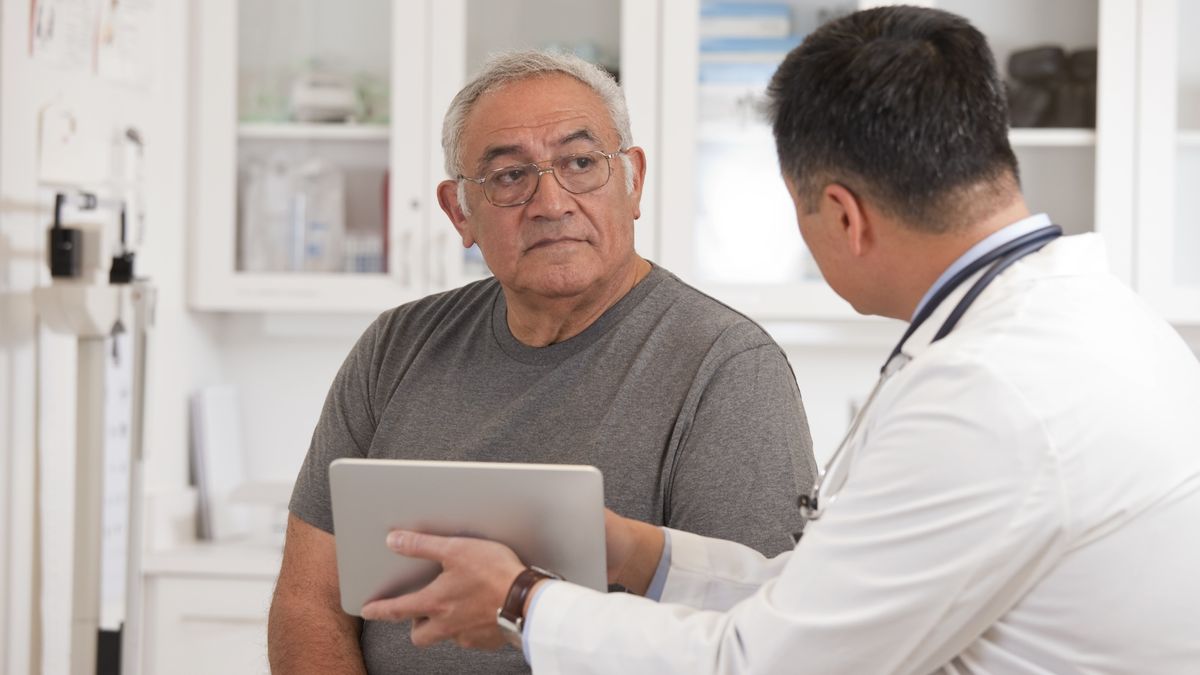As males reach their 40s and 50s, they may start to experience erectile dysfunction and declines in their sex drive, all while they produce less and less testosterone. These changes may sound akin to those that arise during perimenopause and menopause, the time windows that lead up to and then follow a female’s last menstrual period.
Given these similarities, could this mean there’s a “male menopause”?
Not really, an expert told Live Science — although the changes that aging males experience can still affect their quality of life.
Although middle-aged males describe symptoms similar to those that females experience during menopause, including hot flashes, calling these experiences “male menopause” would not be accurate.
Related: Why do women tend to outlive men?
The hormone-making functions of a male’s testes and a female’s ovaries decline with age, but in the case of females, this happens abruptly — over the course of a couple of years. In males, this age-related decline is more gradual, taking several decades. The key hormone made by the testes is testosterone, the primary male sex hormone that’s responsible for supporting sexual development and function.
“Andropause” is a nonmedical term that’s often used to describe the declining testosterone levels seen in aging men, Dr. Jesse Mills, director of the Men’s Clinic at UCLA Health, told Live Science in an email.
“But it’s not the same as menopause,” Mills said, since men can maintain testosterone levels in the “normal” range into their 80s and beyond.
In comparison, females usually enter perimenopause, or the transition toward menopause, around the ages of 45 to 55. During this time, the ovaries make much less estradiol, the main form of estrogen in the body before menopause. At its peak, estradiol can reach levels up to 400 picograms per milliliter (pg/mL) of blood, and these levels can fall to less than 0.3 pg/mL after menopause.
The body continues making another, weaker form of estrogen — called estrone — but it can’t make up for the lost estradiol. This leads to the loss of periods, changes in vulvar tissue, hot flashes and diminished vaginal lubrication associated with menopause.
While males do see declining testosterone levels as they age, according to Mills, their symptoms are not nearly as dramatic as what females go through. Testosterone levels fall at an average of 1.6% a year in males, starting around age 30. The testes would only completely stop making testosterone in the event a person lost testicular function due to disease, an accident or castration, which might be used to treat prostate cancer, for instance.
Related: Move over, Viagra — this spider’s boner-inducing venom could treat people let down by the blue pill
The exact reason for age-related declines in testosterone is not fully understood. Some evidence suggests that the cells that make testosterone grow less responsive and decline in number with age. Signals from the brain would normally direct these cells, and that signaling also changes with age.
“Low testosterone is associated with many things that get worse as we age,” Mills noted. “Diabetes, high blood pressure, high cholesterol, poor sleep and lower activity are common examples.” There’s a known link between low T and these conditions, but at this point, it’s not clear if one leads to the other, or vice versa.
Mills recommends adopting healthy lifestyle practices to help maintain testosterone levels into old age, as there’s some evidence that such interventions can help. For instance, he recommends intensive exercising 20 minutes a day, getting at least seven hours of deep sleep each night, staying hydrated and consuming a diet rich in lean proteins and green vegetables.
When asked whether aging men should take testosterone supplements, Mills said that individuals should do so only if they need it.
International guidelines suggest men with testosterone levels lower than 350 nanograms per deciliter (ng/dL) of blood who are experiencing symptoms may benefit from such supplements, he said. In particular, older men with levels under 200 ng/dL are at higher risk for brittle bones, heart disease and weight gain, as well as sexual symptoms such as erectile dysfunction and low libido, Mills said.
Many direct-to-consumer companies make supplements available to people with normal testosterone levels, Mills noted. The supplements don’t necessarily pose a danger, but they may not be very beneficial to those without a testosterone deficiency, he said.
It’s important to emphasize that the effects of testosterone on health and life span aren’t yet fully understood, so future studies may provide better guidance.
This article is for informational purposes only and is not meant to offer medical advice.
Ever wonder why some people build muscle more easily than others or why freckles come out in the sun? Send us your questions about how the human body works to community@livescience.com with the subject line “Health Desk Q,” and you may see your question answered on the website!











/https://tf-cmsv2-smithsonianmag-media.s3.amazonaws.com/filer_public/34/31/3431771d-41e2-4f97-aed2-c5f1df5295da/gettyimages-1441066266_web.jpg)








Discussion about this post